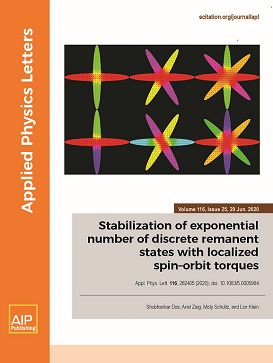Magnetic Devices with exponential number of discrete states
Spintronics is a thriving branch of nano-electronics which utilizes the spin of the electron and its associated magnetic moment in addition to the electron charge used in traditional electronics. The main current practical contributions of spintronics are in magnetic sensing and non-volatile magnetic data storage, and additional breakthroughs in developing magnetic based processing and novel types of magnetic memory are expected.
Spintronics devices commonly consist of magnetic elements manipulated by spin-polarized currents between stable magnetic states. When spintronic devices are used for storing data, the number of stable states sets an upper limit on memory capacity. While current commercial magnetic memory cells have two stable magnetic states corresponding to two memory states, there are clear advantages to increasing this number, as it will potentially allow increasing the memory density and enable the design of novel types of memory.
The Laboratory has shown that relatively simple structures can support exponential number of magnetic states – much greater than previously thought. The studied structures are magnetic thin films patterned in the form of N crossing ellipses which have two to the power of 2N magnetization states. Furthermore, the researchers from the laboratory have demonstrated switching between the states by generating spin currents

